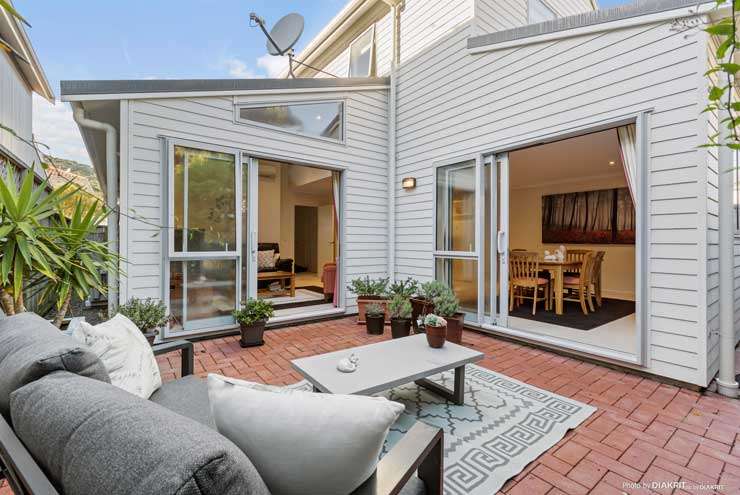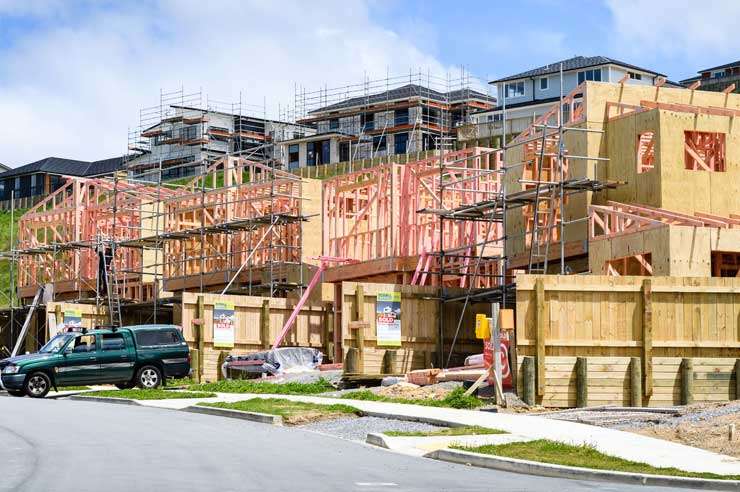Wellington's new rating values are out. The city council assessed every property in the capital in September and homeowners can now check their new RV.
The average RV for all residential properties in Wellington - including flats and apartments - is $1.245m, well up on the 2018 average RV.
It's highly likely homeowners will see big changes in their RV - often their first touch point with what's going on in the housing market. OneRoof's own House Value Index shows Wellington's average property value has surged 55% ($442,000) over the same three-year period to $1.254 million, although price growth has slowed considerably in the last three months to 3.6%.
OneRoof has looked at the shift in the RVs of the 10 highest settled sales in the capital this year (for privacy reasons we have only given the street address and suburb, not the street number) and even this small sample size reflects the shift in the market since 2018.
Start your property search
The properties' RVs in 2018 ranged from $1.88m to $5.85m, with the average RV of the 10 homes sitting at $3.108m. The average RV of the 10 homes in September 2021 was $4.39m - a jump of 41%.
The RV for all but one property was above the price the properties sold for, which can be attributed to the fact that most of the sales took place in the first quarter of the year.
The property that saw the biggest leap in its RV - a whopping 104% - was an investment property on The Terrace that houses three apartments and was advertised as offering buyers a yield of $174,200 a year. The surge in RV for the other properties can be attributed to the general lift in the market and improvements made to the properties.

There’s no doubt Wellington has become super-expensive, with first-home buyers now having to pay over $1million to break into the market.
“The fact that 40 per cent of all sales are still first-home buyers indicates it’s not unaffordable,” says Tommy Real Estate principal Nicki Cruickshank.
“An average three-bedroom, one-bathroom house is now about $1.3m in Wellington City and probably a two-bedroom is $1.1m. That’s what the level is, and it’s sort of become the new norm.”
Prices in the sought-after Kapiti Coast are not far behind – around $900,000 for a two-bedroom and $1.1m or $1.2m for a three-bedroom on average.
As an example of how much prices have risen, unit 14 at 36 Dee Street, Island Bay, sold for $1,480,700 in July. Unit 6 in the same complex was sold for $1,180,000 in January. Both are three-bedroom townhouses with single garage on unit titles.
Market shifting
Wellington’s two big buyer groups are already being hit by Government measures which will impact next year’s market, she says.
Changes to LVRs and the possible debt-to-income ratios will make it harder for first-home buyers to borrow, which could see them largely cut out of the market over the next 12 months.
The other main buyer group is investors and they are already exiting the market, especially mum and dad investors, Cruickshank says.

A home in Dee Street, Island Bay, sold for $1,480,700 in July. Photo / Supplied
That’s partly because of Government changes around not being able to claim interest any more, which is their biggest expense, but also because the Healthy Homes standards are tricky to meet in Wellington.
“It's a sort of one-size-fits all rule which doesn't work in Wellington. Owners are finding it too expensive and too difficult to try to get some of these homes up to the standard. It’snot that they don't want to, it's just that in a lot of cases it's impossible.”
That, along with the tax changes and the hassle of renting with tenants now allowed to paint walls and have pets, means many landlords are opting out.
Fewer buyers next year
Some are instead buying new off-plan. They are no longer buying existing homes because the extension to the Brightline test means they have to hold an existing home for 10 years as opposed to five for a new build or face taxes.
“Those two groups (first-home buyers and investors) do make up the majority of the buyers in our market.”
That means there could be a lot fewer buyers in the Wellington market next year, with prices likely to stall and properties staying unsold for longer, she says.
On the other hand, lack of supply has been the biggest issue over the last 12 months and that has kept demand and prices high.
Grant Henderson, regional general manager for Bayleys Wellington Residential, says first-home buyers are definitely finding it harder to purchase – “I feel so sorry for first-home buyers”.

New homes under construction in Wellington. Photo / Getty Images
Off-the-plan builds are being snapped up by investors who are “buying them hard” because of the tax and Brightline advantages.
He agrees that investors are dropping their older properties, also saying it has become too hard for landlords.
Wellington has become less affordable, Henderson thinks, with it being extremely hard to find anything for under $1m.
“It’s almost all gone. Unless you are buying a townhouse in a new development there's literally nothing left.
“Johnsonville is all $900,000 and up; Tawa’s the same. The biggest price increase I've seen is probably the Kapiti Coast - Raumati South is dearer than Wellington in some instances.
“Raumati Beach is a really nice little suburb – it’s always been a hidden secret but now we're getting $1.1m for things that would have been $650,000 or $700,000 two years ago.”
FOMO easing
In the Hutt Valley, prices and demand have also surged.
“Upper Hutt and Lower Hutt are both under huge pressure. A lot of developments are happening in Lower Hutt - the Lower Hutt City Council did its density plan so anything that's in a 500-metre radius of the train station can be built 50 per cent site coverage, three storeys high and you don't need to provide car parking.”
That has allowed developers to take advantage of those sites and push the sales of properties towards investors with first home buyers unable to afford them.
“There's nothing you can buy in those areas under $750, 000/$800,000.”
Not all hope is gone for the first home buyer if they want a standalone house and are willing to commute.
A new four-bedroom, double bathroom, double garage home can still be achieved for under $700,000, but there is an hour and a half commute to the city, though that will drop when Transmission Gully opens, Henderson says.
“Otaki and Levin are probably the two last bastions of the far Kapiti Coast you can still buy.”
Listings are short, however, and Henderson doesn’t foresee a big price drop or collapse coming.
He thinks the FOMO (fear of missing out) has eased a bit and expects lifestyle properties to continue to be popular in the Covid era.
Many Wellingtonians are still working from home, with some thinking about their futures, he says.
“Lockdowns are forcing people to uncover exactly how they live and how they want to live. That’s what’s coming out of this.”
- Additional reporting Catherine Masters


















































































